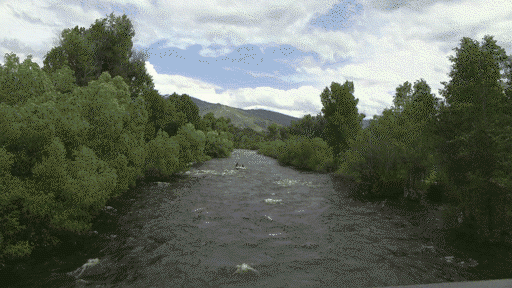Colorado water quality officials plan to seek fast-track authority from lawmakers to fill a permitting gap and protect hundreds of streams no longer safeguarded under a recent rollback of federal Clean Water Act protections.
If they succeed, Colorado would become one of only a handful of states to seek authority to issue dredge and fill permits for streams left unprotected by the Clean Water Act.
The surprising move comes as lawmakers return to the State Capitol for what is likely to be a short, high-octane work session after adjourning March 14 in the face of the pandemic.
Nicole Rowan, clean water program manager for the Colorado Department of Public Health and Environment, said officials felt they had to move quickly because federal protections are set to expire next month.
“We’re faced with a timing situation. We didn’t ask for the rule to be issued in the middle of this crisis,” she said. “But this new rule is going to leave a very large gap in environmental protection. We want to make sure we can do the right thing in Colorado by making sure our waters are protected and by giving our construction sector the ability to keep going.”
The proposed bill, which has yet to be formally introduced, would replace permitting work once overseen by the U.S. Army Corps of Engineers.
Last week, in another move to combat the rollback of stream protections, Colorado Attorney General Phil Weiser announced he would sue the U.S. Environmental Protection Agency to stop the new Waters of the U. S., or WOTUS, rule, as it known, from taking effect June 22. But that lawsuit could take months or years to resolve.
Environmentalists said it’s important that the state moves quickly to assume the permitting authority to protect streams and to allow millions of dollars in construction, dam and road projects to be properly reviewed and permitted rather than be placed on indefinite hold.
“We support both of the state’s responses,” said Melinda Kassen, general counsel for the Theodore Roosevelt Conservation Partnership (TRCP). “Sadly, we cannot assume [the state’s lawsuit to stop the new rule] will succeed. Even if it does, it will be years before the federal government adopts a new, appropriate rule. Because of the years of uncertainty we face, the TRCP also supports draft legislation allowing Colorado to stand up a new permit program.”
The Clean Water Act, among other things, defines which streams and waterways are subject to federal regulation, but those definitions have been fiercely contested in the courts, in part because the United States is home to a wide variety of waterways and wetlands.
In the Midwest and East, for instance, major rivers that carry barge and shipping traffic are clearly “navigable,” the term early courts used to determine how water would be regulated. If a stream was considered navigable, it was subject to federal law.
But Colorado and other Western states rely on shallow streams that don’t carry traditional commercial traffic. Over the years those streams too became protected by the Clean Water Act.
But the new WOTUS rule excludes them, saying that only perennial and intermittent streams, or those deemed navigable, will be regulated, meaning that thousands of miles of streams in Colorado and other Western states will no longer be protected under the law.
Still Colorado’s effort to fill the regulatory gap so quickly is causing concern among some water interests and developers who fear it won’t do enough to solve underlying problems with the WOTUS rule.
“The state does have a legitimate concern here,” said John Kolanz, a Loveland, Colo.-based attorney who specializes in Clean Water Act permitting. “It’s a big change. But ideally, I would like to see them wait and discuss this with more stakeholders to flesh out some of the issues that a program like this would raise,”
According to an early draft of the proposed permitting bill, the state’s Water Quality Control Division, part of the CDPHE, would assume oversight for streams not protected under the new rule, and it would establish a set of fees to cover the estimated $1 million annual cost of running the program.
Rowan, of the CDPHE, said regulators want to assume permitting authority as soon as the federal protections lapse next month, with more detailed rulemaking beginning shortly thereafter.
Clarification: This article has been clarified to indicate that Colorado is seeking 404 permitting authority only over streams no longer protected under the Clean Water Act.
Jerd Smith is editor of Fresh Water News. She can be reached at 720-398-6474, via email at jerd@wateredco.org or @jerd_smith.
Fresh Water News is an independent, nonpartisan news initiative of Water Education Colorado. WEco is funded by multiple donors. Our editorial policy and donor list can be viewed at wateredco.org


 Print
Print